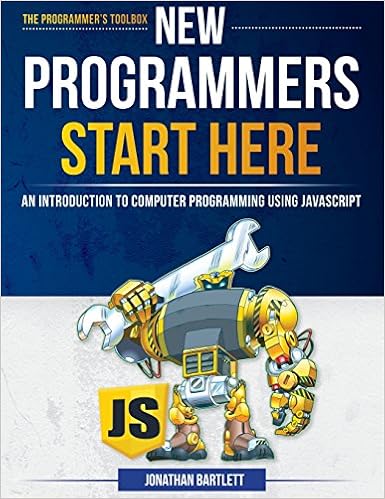 From Jonathan Bartlett (aka johnnyb) in his new book,
From Jonathan Bartlett (aka johnnyb) in his new book,
New Programmers Start Here
What separates modern computers from the calculating machines of the past is that modern computers are general-purpose computers. That is, they are not limited to a specific set of predesigned features. I can load new features onto a computer by inputting the right program. How did we get the idea of creating such a general-purpose machine?
It turns out that a question in philosophy led to the creation of general-purpose machines. The question was this—was there a way to create an unambiguous procedure for checking mathematical proofs? This seems like an odd question, but it was a big question in the 19th century. There had been many “proofs” where it was unclear if the proof actually proved its subject. Thus, philosophers of mathematics tried to find out if there was a way to devise what was then called an “effective procedure” for checking the validity of a mathematical proof. But that leads to another question—what counts as an “effective procedure” anyway? If I list out the steps of a procedure, how do I know that I’ve given you enough details that you can accomplish this procedure exactly as I have described it? How can I tell that my instructions are clear enough to know that the procedure that I have listed can be unambiguously accomplished?
Alan Turing and Alonzo Church both tackled this problem in the 1930s. The results showed that one could define unambiguous procedures with the help of machines. By describing a machine that could perform the operation, one can be certain that the operation of the procedure would be unambiguous.
In addition, Turing described a set of operations which could be used to mimic any other set of operations given the right input. That is, Turing defined the minimum set of features needed for a computing system to become truly programmable—where the programmer had an open-ended ability to write whatever software he wanted. Machines and programming languages that are at least as powerful as Turing’s set of features are known as Turing-complete or Universal programming languages. Nearly every modern programming language in common usage is Turing-complete.
It is interesting to note that the creation of computing came from a question in philosophy. Many are eager to dismiss the role of philosophy in academics as being impractical or unimportant. But, as we see here, like all truths, philosophical truths have a way of leading to things of deep practical importance.
And what happened to the original question—can you develop an effective procedure for checking proofs? The answer is, strangely, no. It turns out that there are true facts that cannot be proved via mechanical means. But to learn that answer, we had to develop computers first. Of course, that leads to another interesting intersection between computers and philosophy.
If there are true facts that cannot be mechanically proved, how could we know that? The only way must be because our minds cannot be represented mechanically. This puts a limit on the potential capabilities of artificial intelligence, and shows that even though computer programmers have developed some very clever means of pretending to be human, the human mind is simply outside the realm of mechanism or mechanistic simulations. – from section 2.2, on Alan Turing More.
See also: Marvin Minsky and artificial intelligence: Could the Internet outlive humanity?
and
What great physicists have said about immateriality and consciousness
Follow UD News at Twitter!